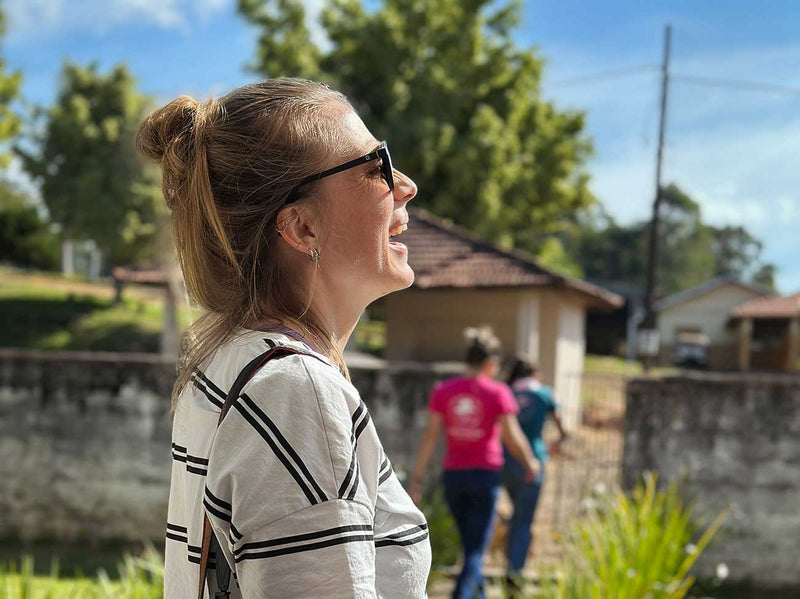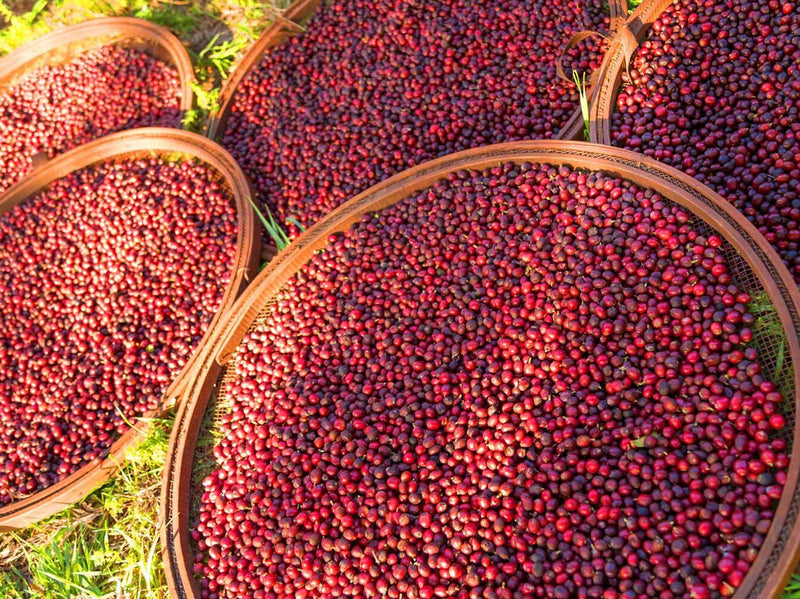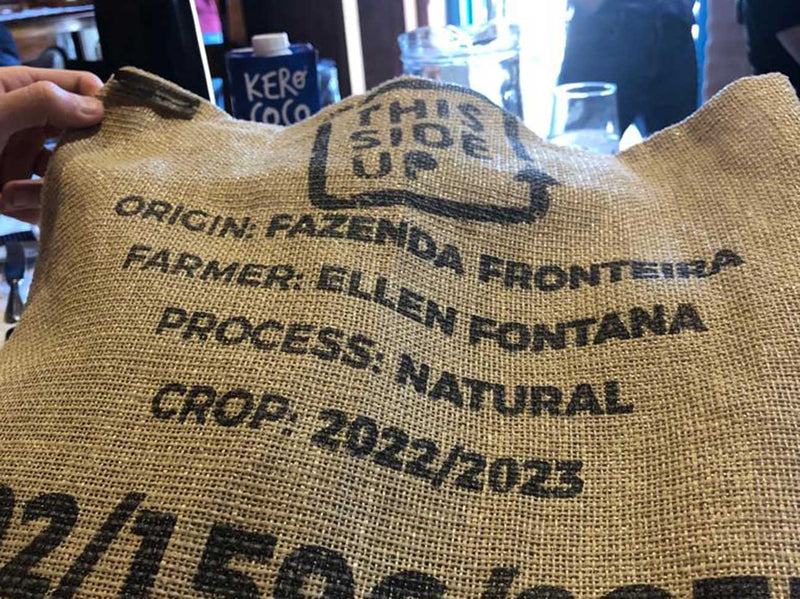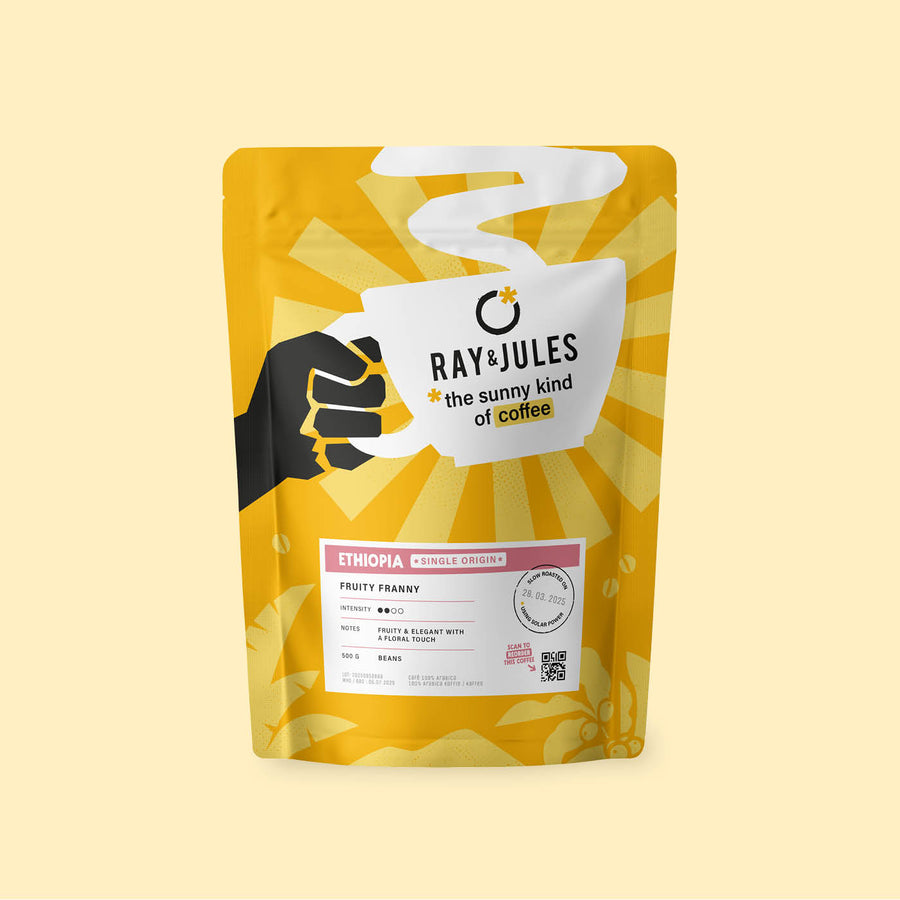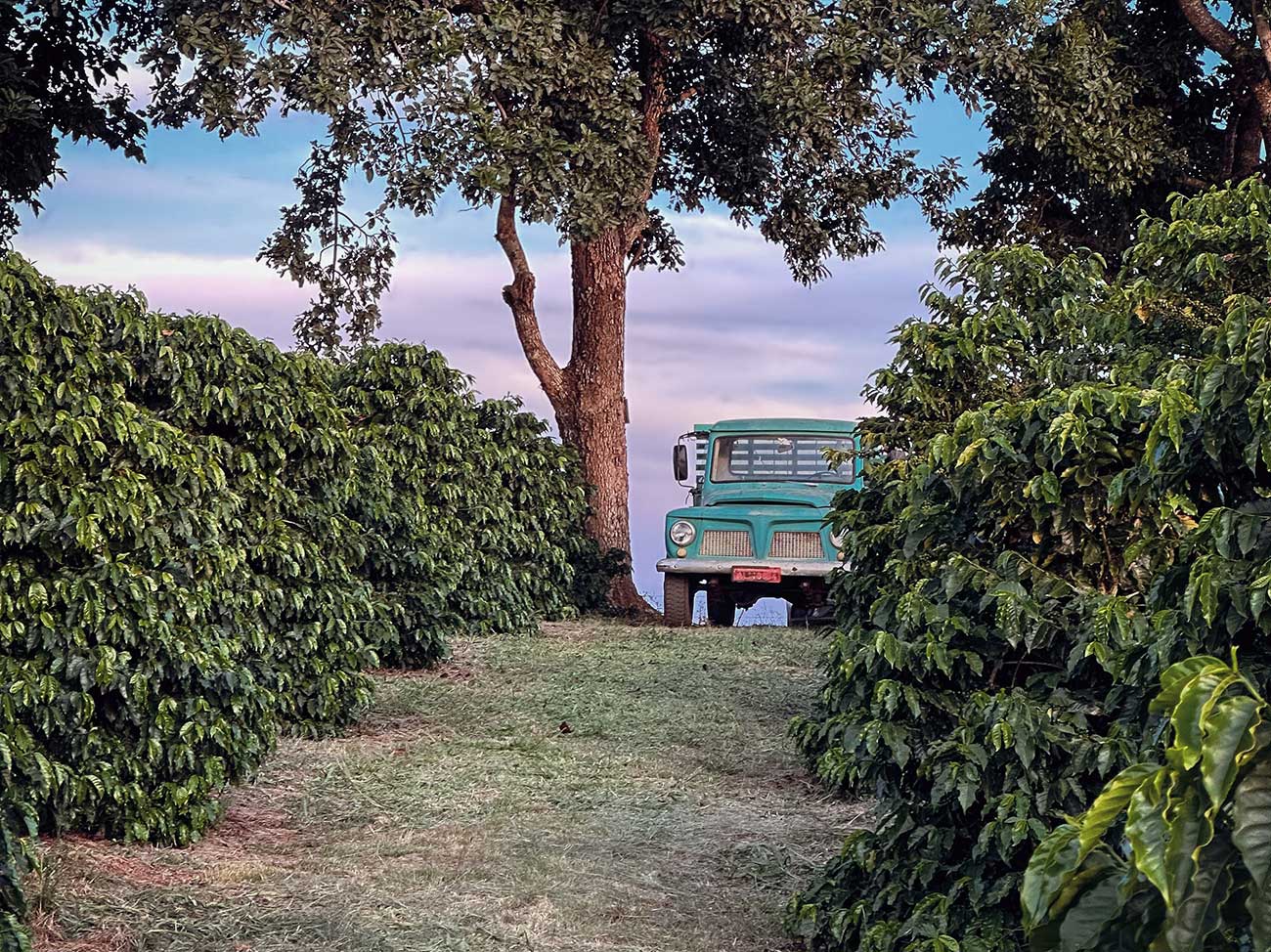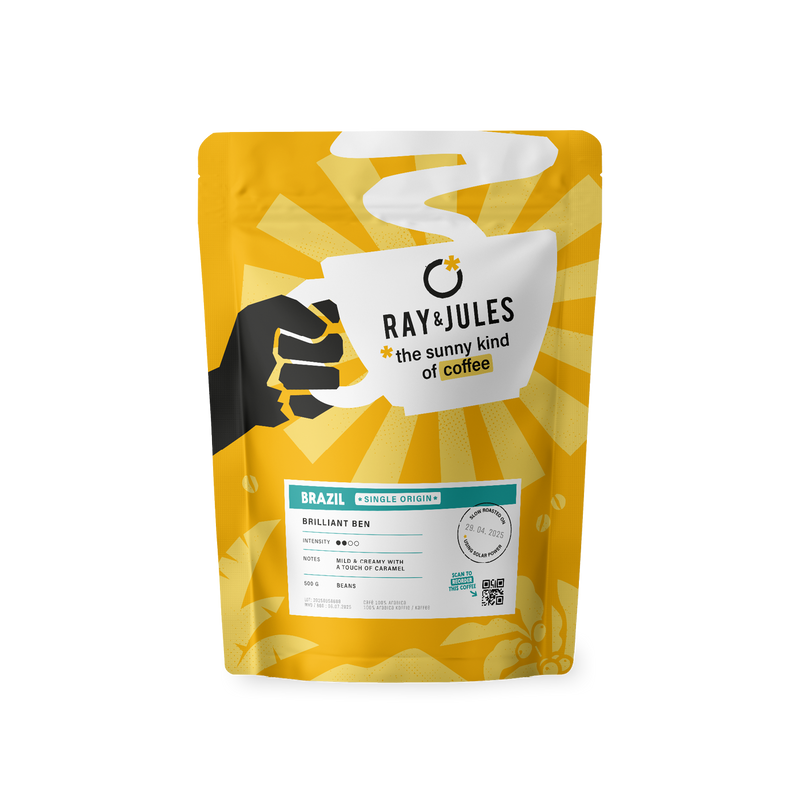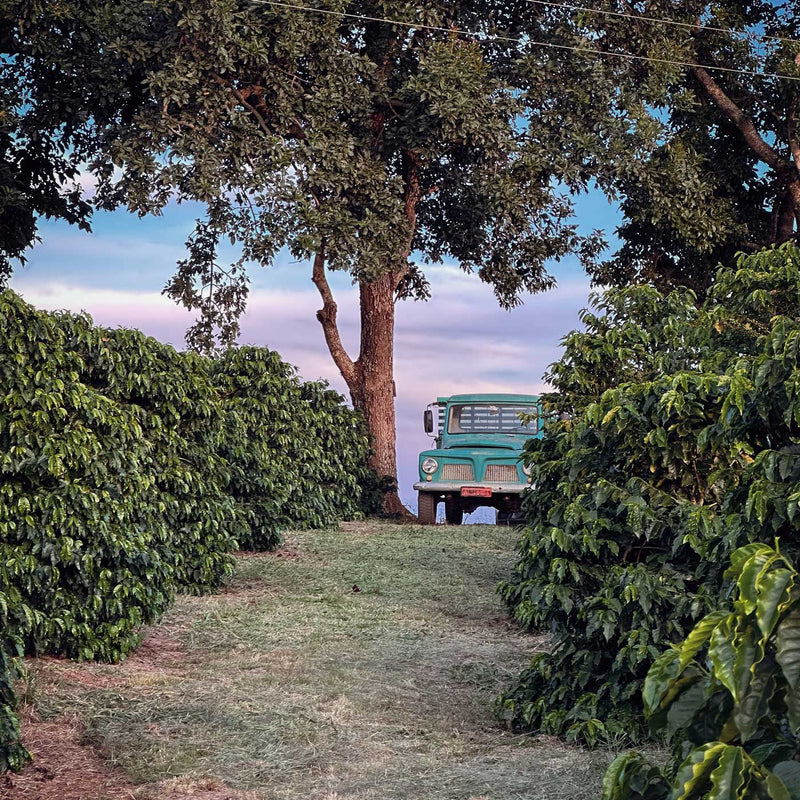Beautiful partner in Brazil
Brazil is the largest coffee producer and produces 35% of the world's coffee beans. Although Brazil has the image of focusing on quantity (less on quality) and monoculture is unfortunately still the norm, This Side Up found Capricornio Coffees to be a great partner. Capricornio works in various regions in the southern states of Paraná and São Paulo. They are unique in the way they welcome ecological innovations and activate farmers to understand their role in the value chain .
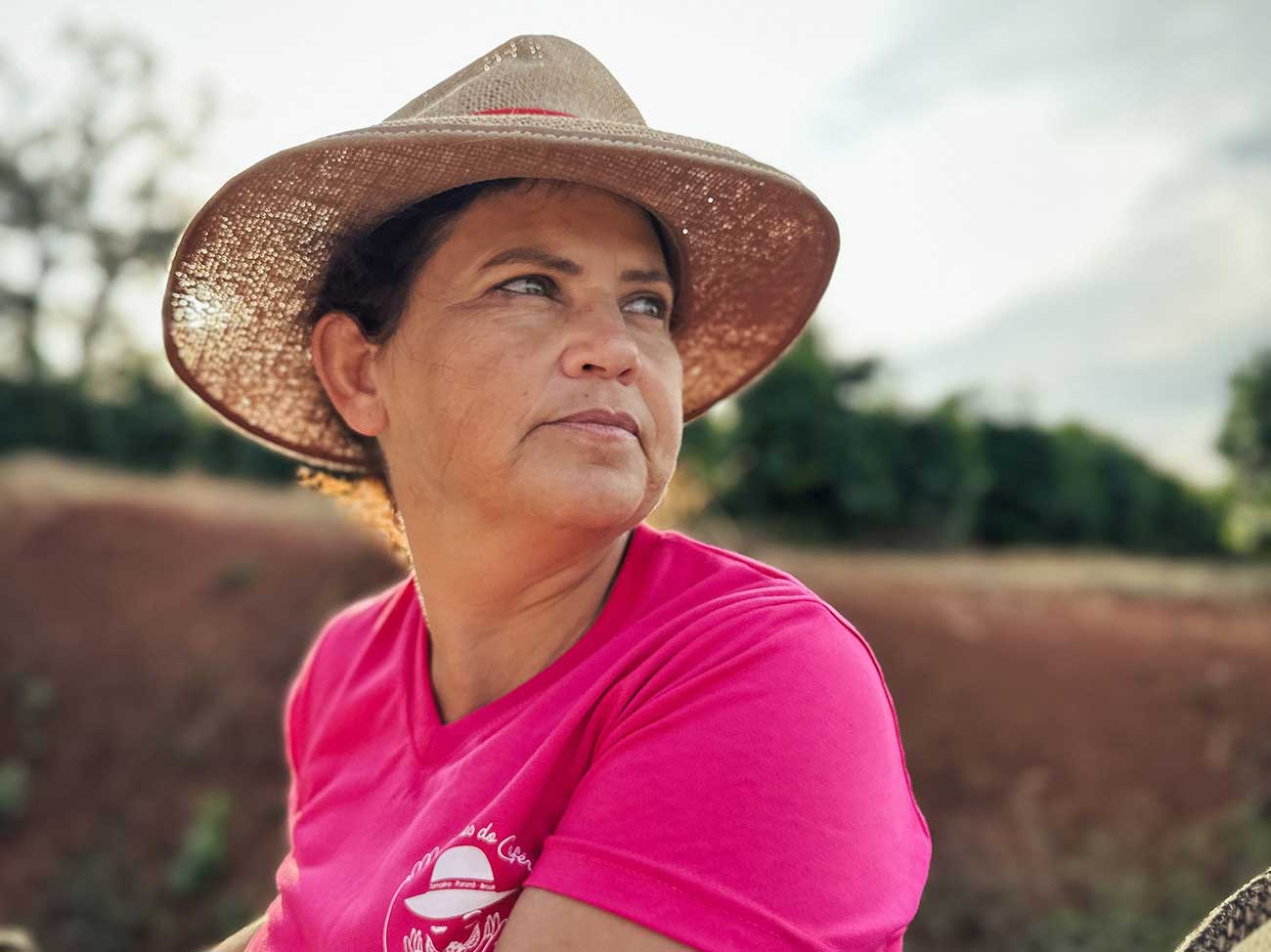
Brilliant Ben...or Bea?
Our Brilliant Ben was put together by the experts (Q-Graders in the jargon) of Capricornio with an eye for nuts and cream in the bag. The result is a coffee blend from 4 'fazendas' (farms): (1) 40% comes from a women's cooperative in Matão (in the north of Paraná), (2) 39% comes from Ellen Fontana, (3) 18% from Fazenda California and (4) 3% of farmers in São Jerônimo de Serre. Sarah visited the 4 fazendas and the question soon arose: shouldn't we change the name to Brilliant 'Bea'? 😊
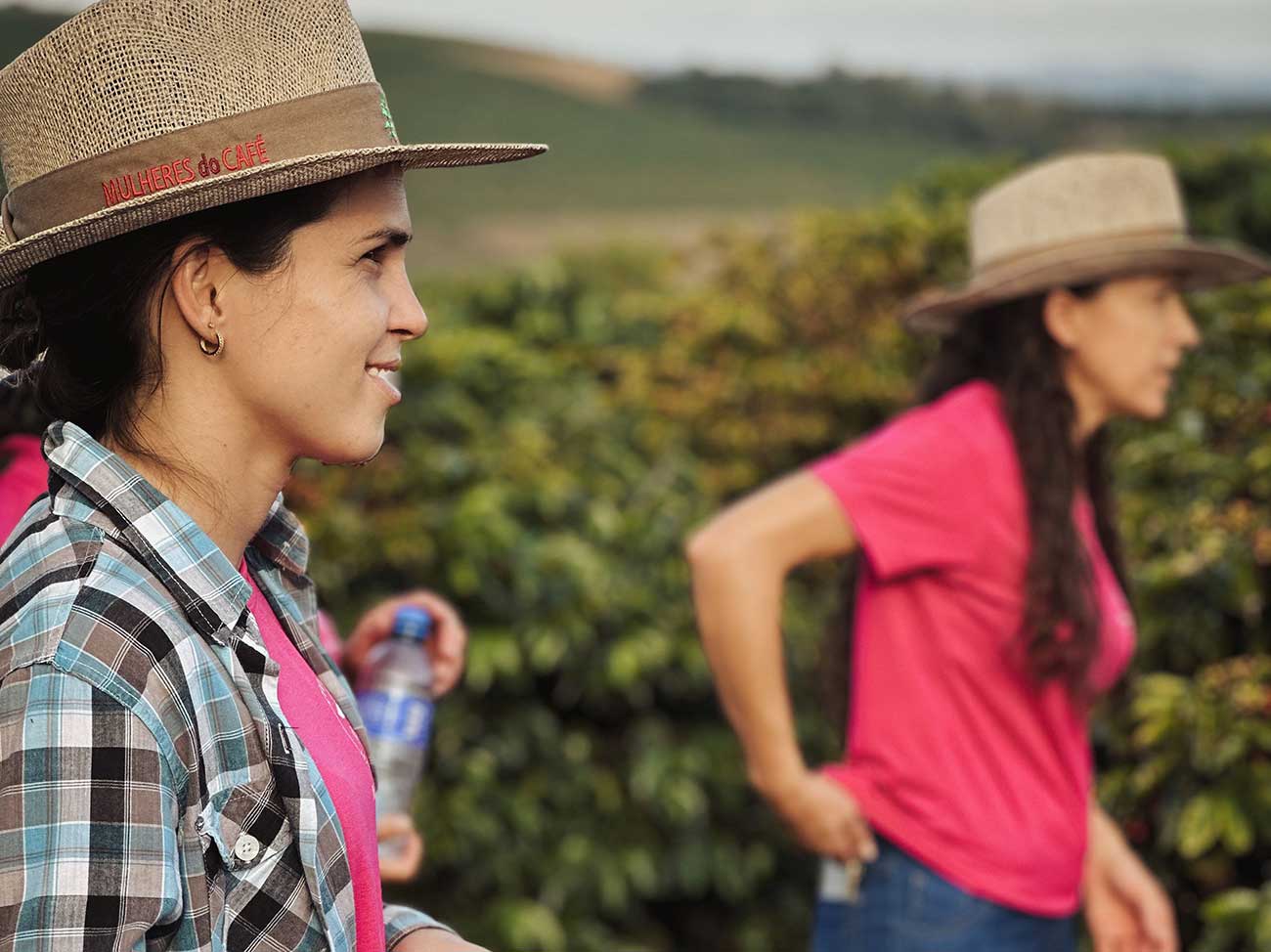
MULHERES DO CAFÉ MATÃO
In 2013, a project started to support and promote local agricultural products in the region around Matão. The women of the local football team met over coffee; this became the starting signal for “Mulheres Do Café do Matão”. In 2017, the group came onto Capricornio's radar because of the coffee quality, motivation and organization. Since then, the quality has increased every year and they are based on the principles of permaculture, combining with corn and other crops. These women's journey is just beginning...
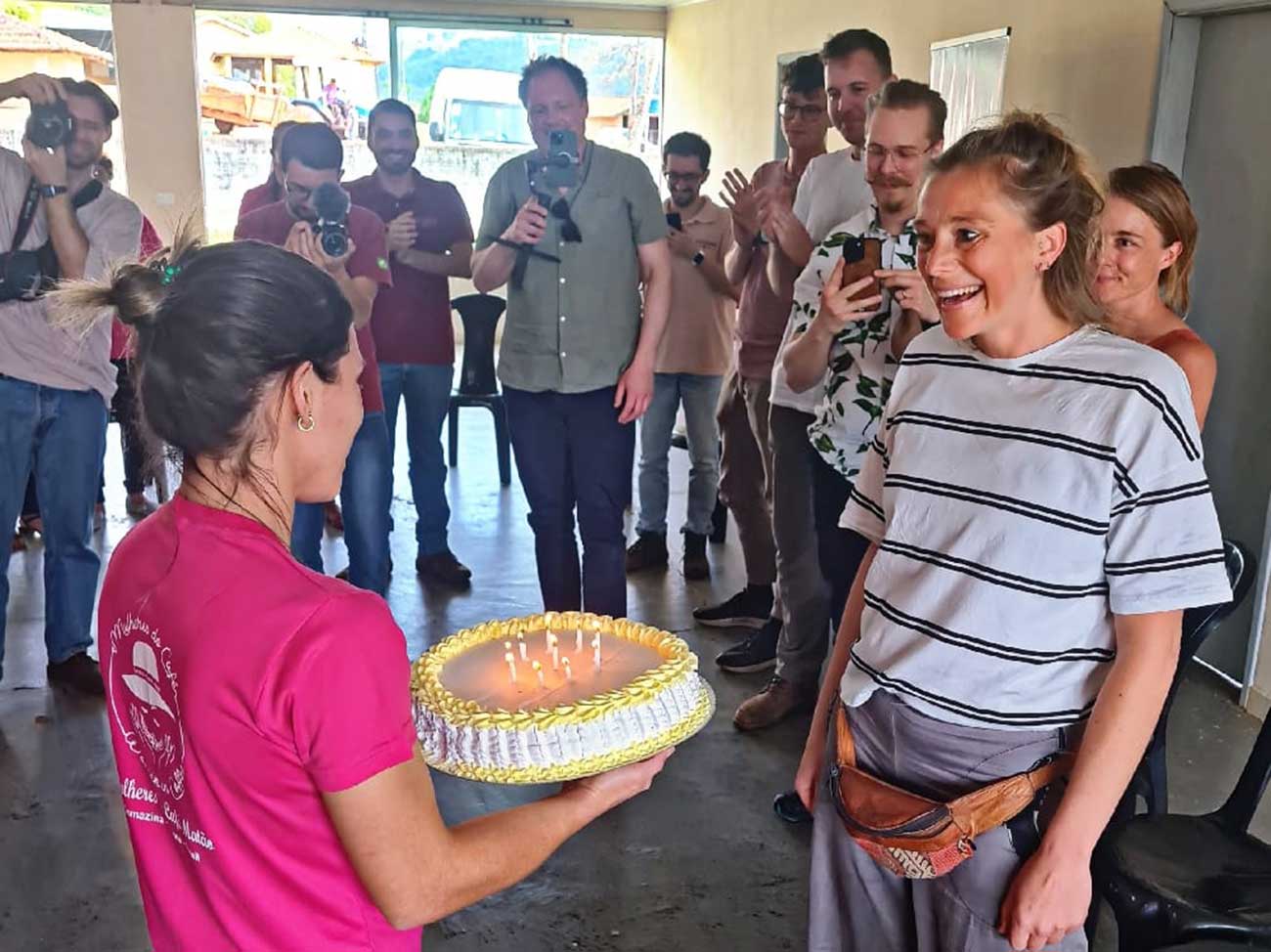
Sarah says:
“When we arrived at Matão we were warmly welcomed with cake, delicious coffee and an intense and moving song sung by the 21 women/coffee farmers. These women work in much more detail, have a different sensitivity than their men and think less 'mechanically' (hilarity everywhere with these words).
They work together, help each other and use each other's machines and/or tools. There is a kind of “commune-like” atmosphere. We visited their plantations, their homes and got a glimpse into their lives, their dreams and their concerns."
There is a kind of “commune-like” atmosphere; they think as a community and less as individuals.
"We had a long conversation with them about the challenges for us and for them. They would of course like to see the hard work and passion they put into their work capitalized on in a good price for their coffee. Unfortunately, this is uncertain every year and therefore exciting. Hope and passion drives them to continually improve the quality of their coffee. When I leave and leave some packets of Brilliant Ben behind, they are visibly moved. They experience it as recognition for their work that we roast their coffee with sun and selling in small, distant Belgium.”
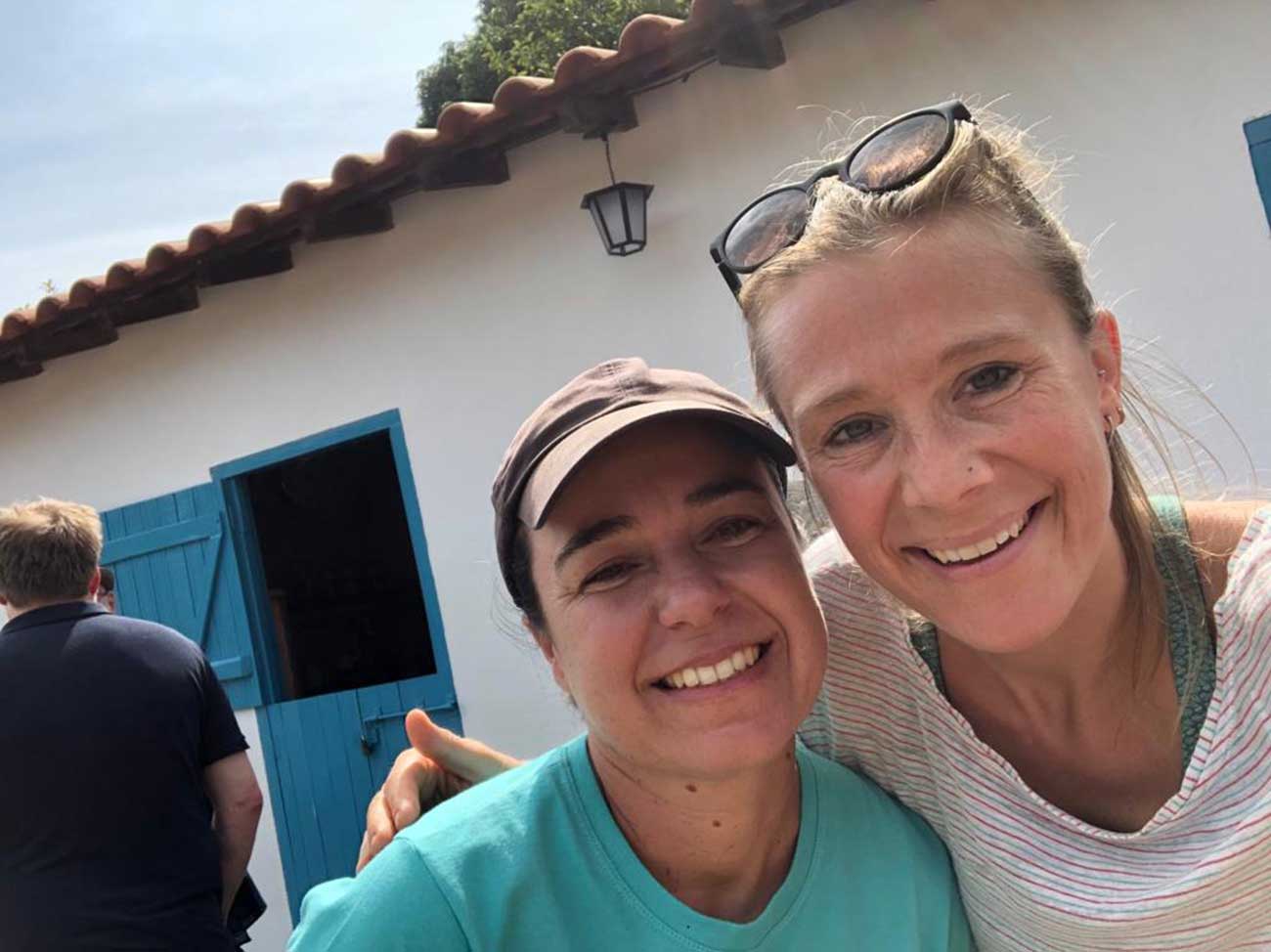
FAZENDA FRONTEIRA
Still carrying the inspiring story of the women from Matão, Sarah visited Fazenda Fronteira by Ellen Fontana the next day. Ellen is definitely not inferior; She tells her story passionately and with a humble commitment to her coffee and the environment. When Sarah said that we roast her coffee on solar energy, the connections and shared dreams became even clearer.
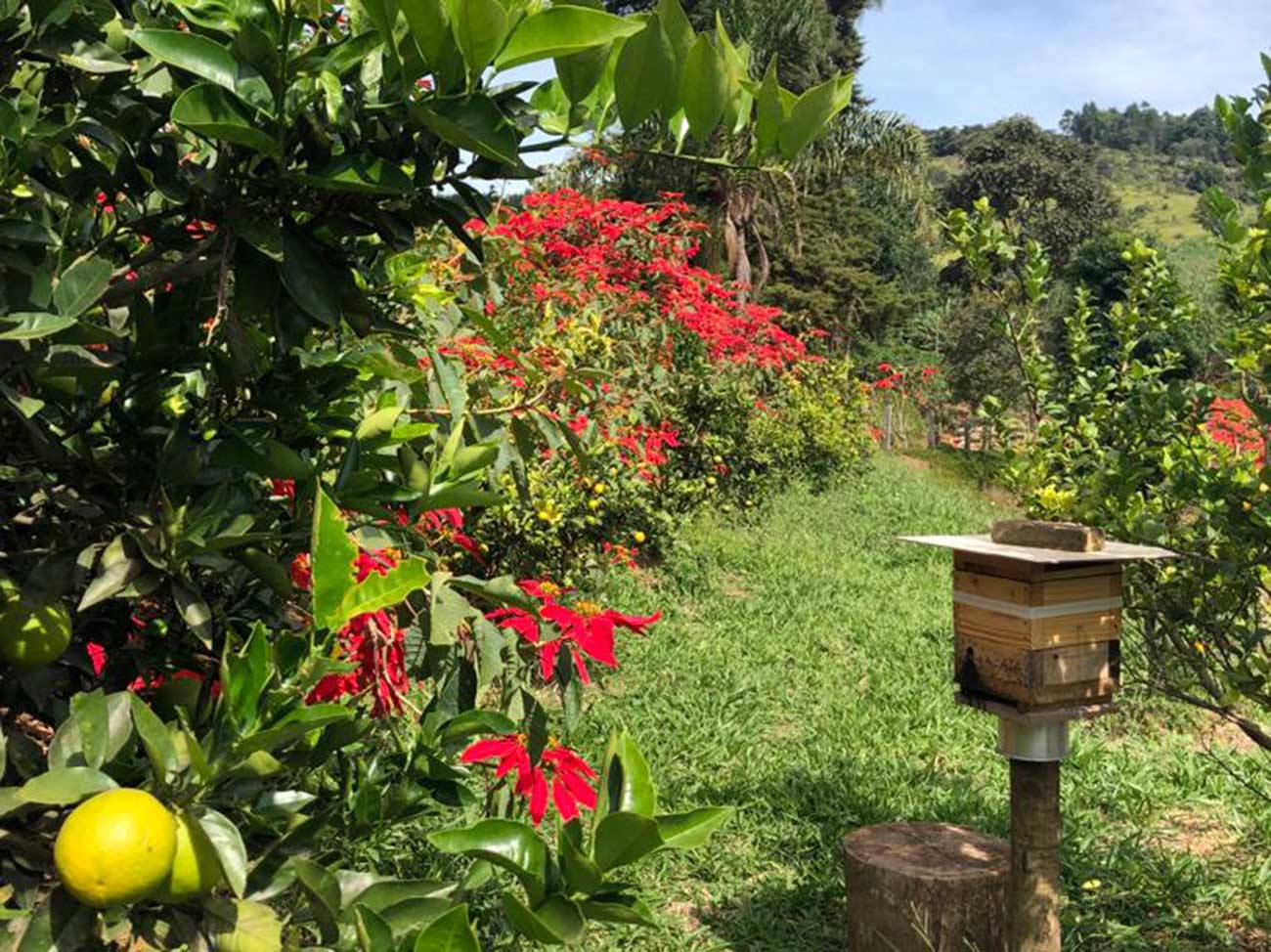
Ellen is a 5th generation coffee grower in her family, but Specialty Coffee was not yet a thing for her. She learned most of what she now knows and applies from the technical and agronomic expertise that Capricornio offers. In addition, Ellen attaches great importance to ecology and the environment. Of the 100 hectares of estate, only 23 are for coffee, mixed with banana, avocado and eucalyptus.
Together with some neighbors and supporting organizations, she maintains a forest of approximately 70,000 trees, takes care of the river and explores how other local products can also be a source of income (such as honey). She has managed to reduce water consumption and avoid pesticides altogether .
If we all do a little, we can all have a better future.
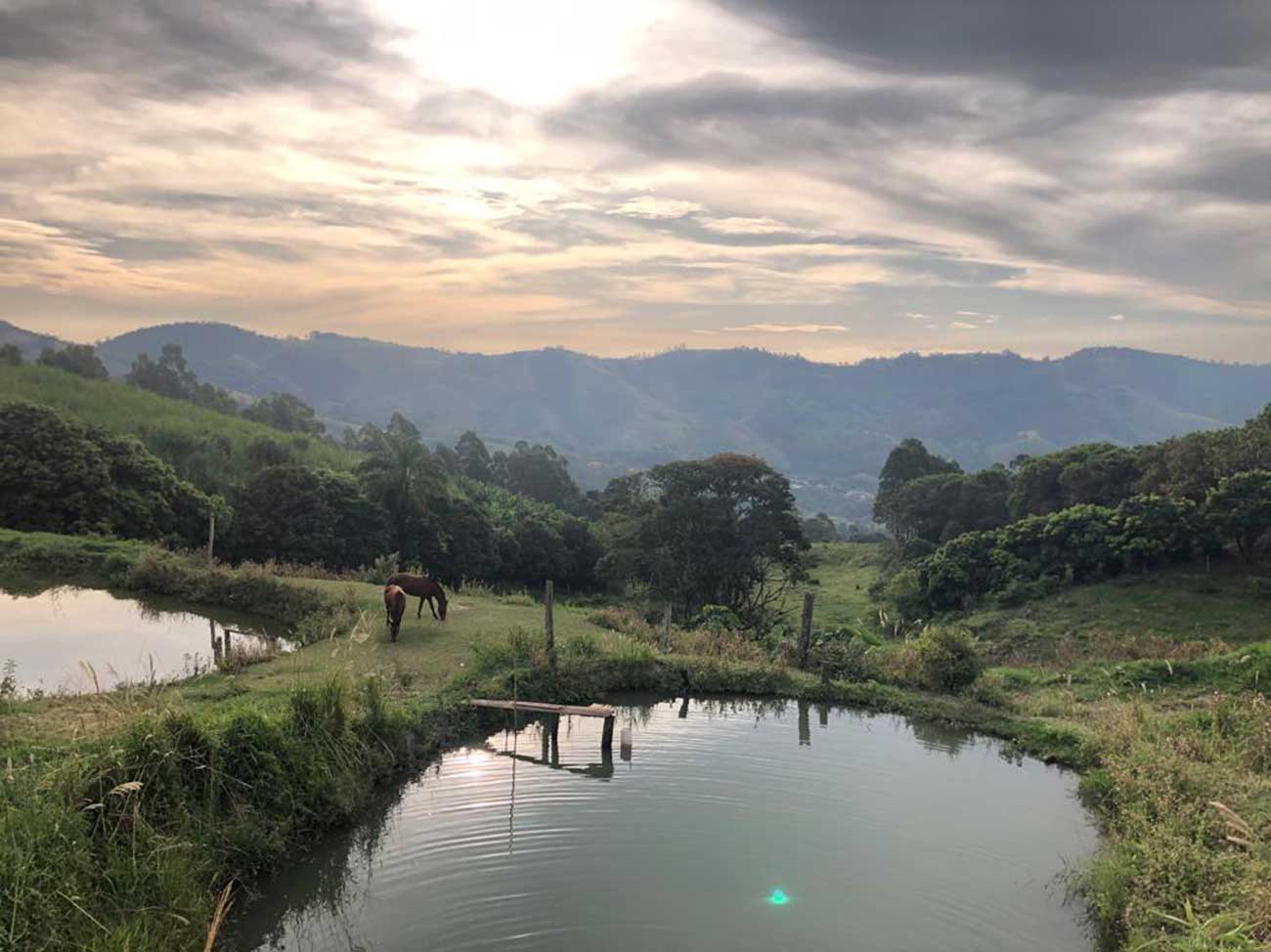
Sarah:
“Ellen's plantations are located in a beautiful, very hilly area with an incredible amount of birds (never before have I seen so many toucans fluttering by 😉), flowers and other crops. Walking around this incredible fauna & flora felt really good. Ellen talks passionately about her coffee and her daily struggle to deal with the vagaries of nature. It soon becomes clear that the frequent climate setbacks motivate her to treat nature with extreme care and respect."
FAZENDA CALIFORNIA
In between all that female coffee violence, we also got the chance to spend a day with Luiz Saldanha at his 'state of the art' Fazenda California. Luiz bought this centuries-old estate from his godfather in 2004. As an agronomist, he wanted to discover new ways to produce coffee without resulting in overexploitation, such as the average Brazilian coffee cultivation. In addition to his cultivation, Luiz runs Capriconio Coffees together with José Antonio Rezende (or “Bispo”). It was an extraordinary, educational experience to be led by these gentlemen.
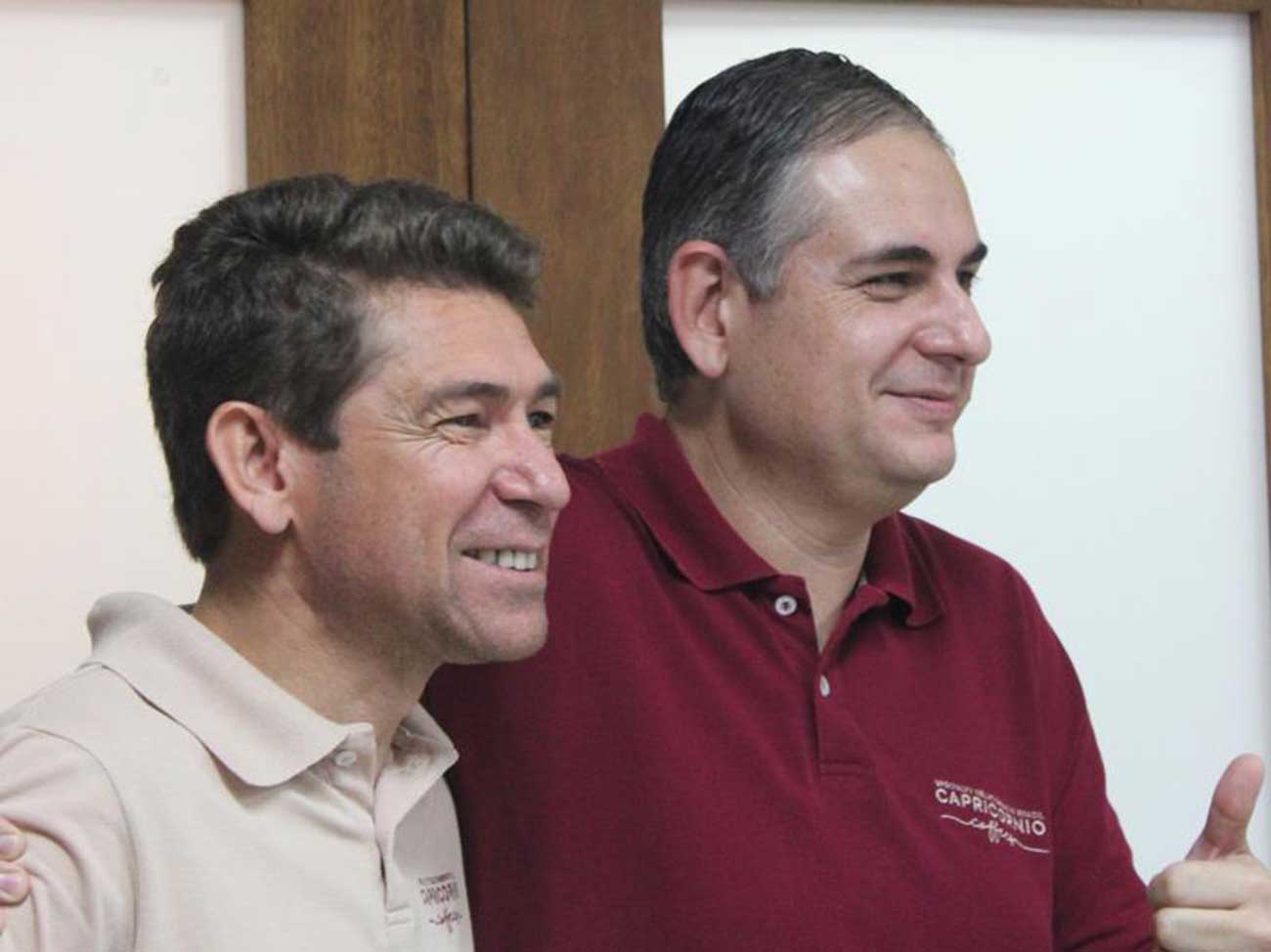
When the coffee adventure began for Fazenda California, the 1,200,000 trees were in a sad state. Luiz meticulously analyzed the soil, leaves and roots and systematically and scientifically improved his coffee trees. He used his knowledge of viticulture to optimize coffee cultivation.
He will specifically fertilize his coffee plants based on figures and systematic maintenance of that data. To this end, he built his own professional lab where he composes and produces the fertilizer himself.
Luiz is not just an 'average' coffee farmer, but inspires and explores to unprecedented depths.
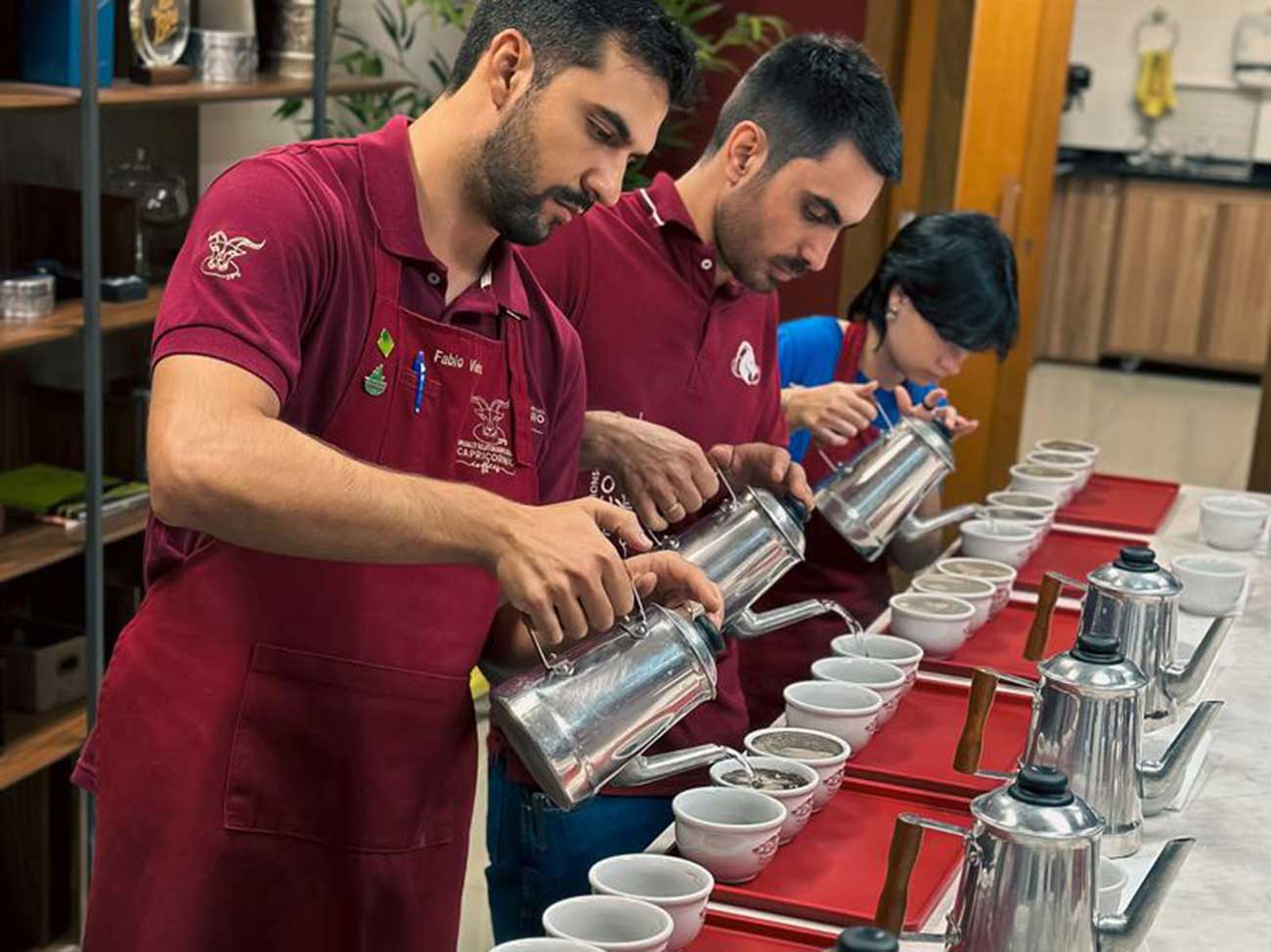
Sarah:
“I always thought that machine picking of coffee berries reduces quality, but Luiz shows something different; Much depends on which machines are used and how the coffee plants are treated. At Fazenda California, a coffee plant will be visited at least 3 times to start at the top during the first picking round and then move down to the bottom. The picking is indeed very selective, based on the color of the berries. Fazenda California is remarkably professional and is based on far-reaching quality analyzes and is therefore certainly not the standard.”
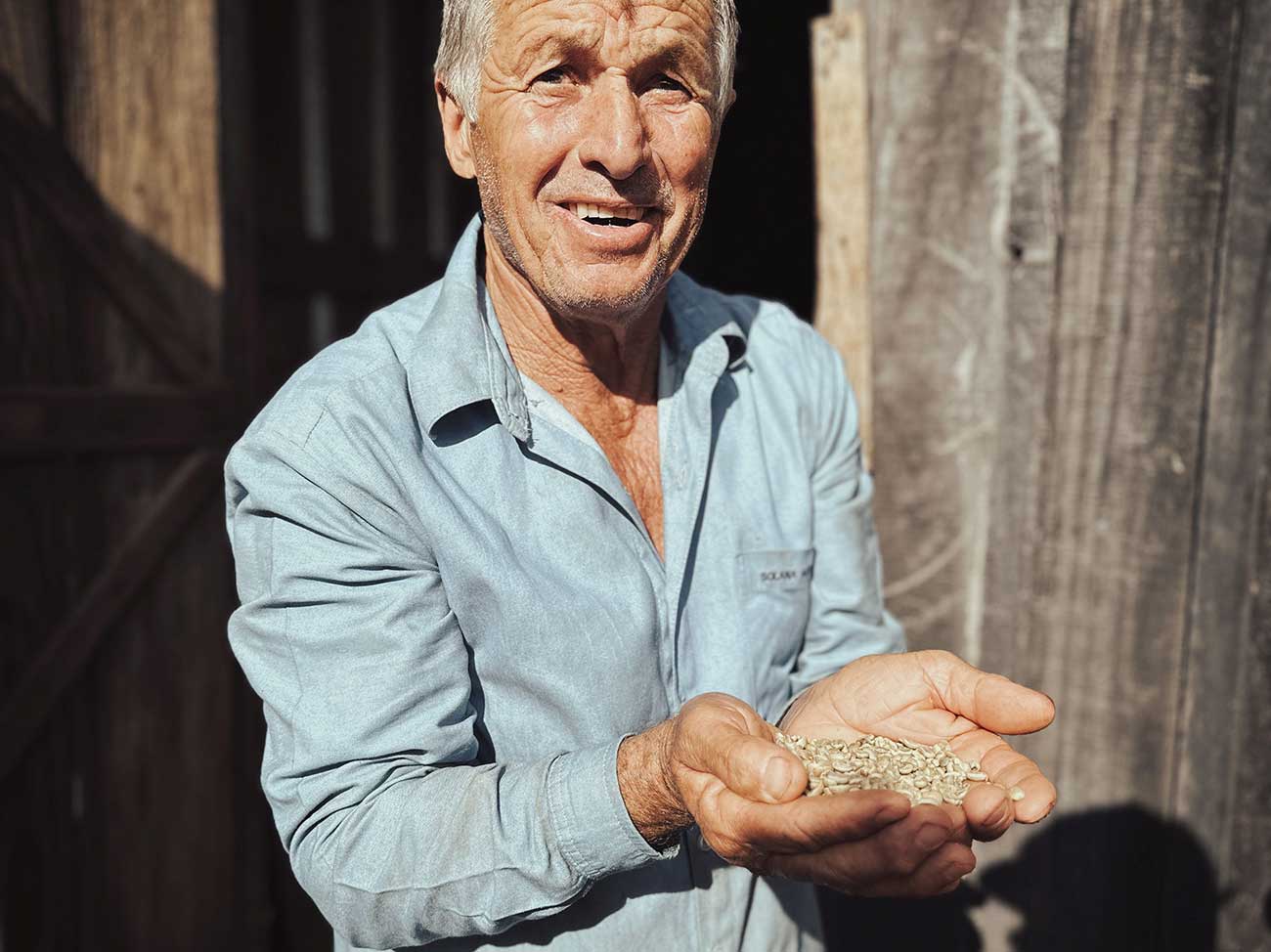
SÃO JERÔNIMO
And then there are the farmers from São Jerônimo. Bispo and Luiz put a lot of time and energy into this cooperative, but when the coffee had to be sold and exported, they encountered bureaucracy and protocols that made this impossible. Bispo and Luiz (aka Carpicornio Coffees) decided to sell this coffee independently of the cooperative and work directly with the farmers themselves. As always, they started small, but these farmers have now become an established value for Capricornio Coffees & therefore also This Side up.
